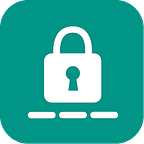3 Steps to Secure your Facebook Account from Cyber Threats
Because your security is important.
Facebook is by far the biggest social platform in the world. What set’s Facebook apart from others is that it has been able to woo Boomers just like the Millenials. Facebook has made it easy to get in touch with people you knew even before the inception of the internet.
But with it’s growing userbase, Facebook’s problems have grown too. In the last 2–3 years, Facebook has been the target of many scandals, data breaches and lawsuits.
That’s why more and more users are leaving Facebook. According to Edison Research, Facebook’s userbase decreased by 15 million from 2017 to 2019 in the US. While Facebook’s userbase grew overall globally, this is a warning sign that even the greats can fall.
If you enjoy Facebook, it’s not necessary to jump the ship yet. You can instead increase the security of your Facebook account to make yourself less vulnerable to data leaks, scandals and hackers.
Here are 3 ways which can vastly improve your Facebook account’s security:
1. Use a Strong Password.
This is the simplest and best way to protect your account. You should use a complex password made up of numbers, upper & lower case letters and special symbols.
You should also mix these characters up. Using a string of letters followed by numbers ain’t the best trick to increase the password strength. In fact, qwerty123 was the 12th most common passwords of 2019, according to SplashData’s Research. (Makes you think.)
While you are at it, also make sure you use unique passwords for your accounts. Repeating the same password, no matter how strong on every site, is a no go for your security. If one of your accounts gets compromised or someone gets access to one of your account, your other accounts are at great risk. But I know, remembering passwords isn’t easy. That’s why you can use a service like LastPass to save all your passwords securely, no matter how complex and how many.
2. Enable 2-factor authentication
Even if you use a strong and unique password, you are still vulnerable to hacks. Modern hackers are getting better and better at guessing or figuring out user passwords by unethical means. This is where 2-factor authentication comes in.
2-factor authentication (2FA) involves adding one more layer of security to your account other than the password. This usually requires entering a temporary 6-digit code along with your password. Since this code is time-bound, it is difficult for users to determine this by brute force attacks.
Facebook provides you with the option of setting-up 2-factor authentication on your account via an Authenticator app or via SMS. Using an authenticator app for 2FA is generally recommended. This is because SMS based 2FA is vulnerable to SIM swap attacks.
While selecting a 2FA app, make sure that it provides the option to easily backup your accounts so that you don’t get logged out of your Facebook account in case of accidental phone loss or app uninstall. TOTP Authenticator is a solid 2-factor authentication app, with features like offline backup, widgets and custom icons.
3. Review the apps you are logged into using Facebook
Login via Facebook is a popular way to login to various services and sites over the internet hassle-free. By selecting this option, you can usually skip the tedious process of entering your data manually and email verification. And who doesn’t love that?
But this comes at a cost. When you log into a service or app via your Facebook account, you give it permission to access your Facebook data. The data accessed may vary from service to service, and usually, a prompt is shown regarding which all permissions will be provided.
A hacker or someone with bad or unethical intentions can access your data or post data on your profile via this. This is pretty much what happened in the Cambridge Analytica scandal of 2018 when through a quiz, the company was able to gather and harvest personal data of quiz takers and their Facebook friends.
While Cambridge Analytica used this data to sway voters in the USA, this can also be calamitous at a personal level if someone gets access to your sensitive data or can impersonate you. Therefore it’s a better practice to restrict the services you log into via Facebook (or Google for that matter).
If you are used to logging via Facebook regularly, you can review and remove the access of services by going to Settings > Apps and services.
Better to be safe than sorry.
Takeaway
As modern hackers become more and more sophisticated, it’s important that we reflect and upgrade our security from time to time.
While these steps won’t make your Facebook data bullet-proof, they will make it secure against the majority of the hacks and leaks.
Stay secure.
